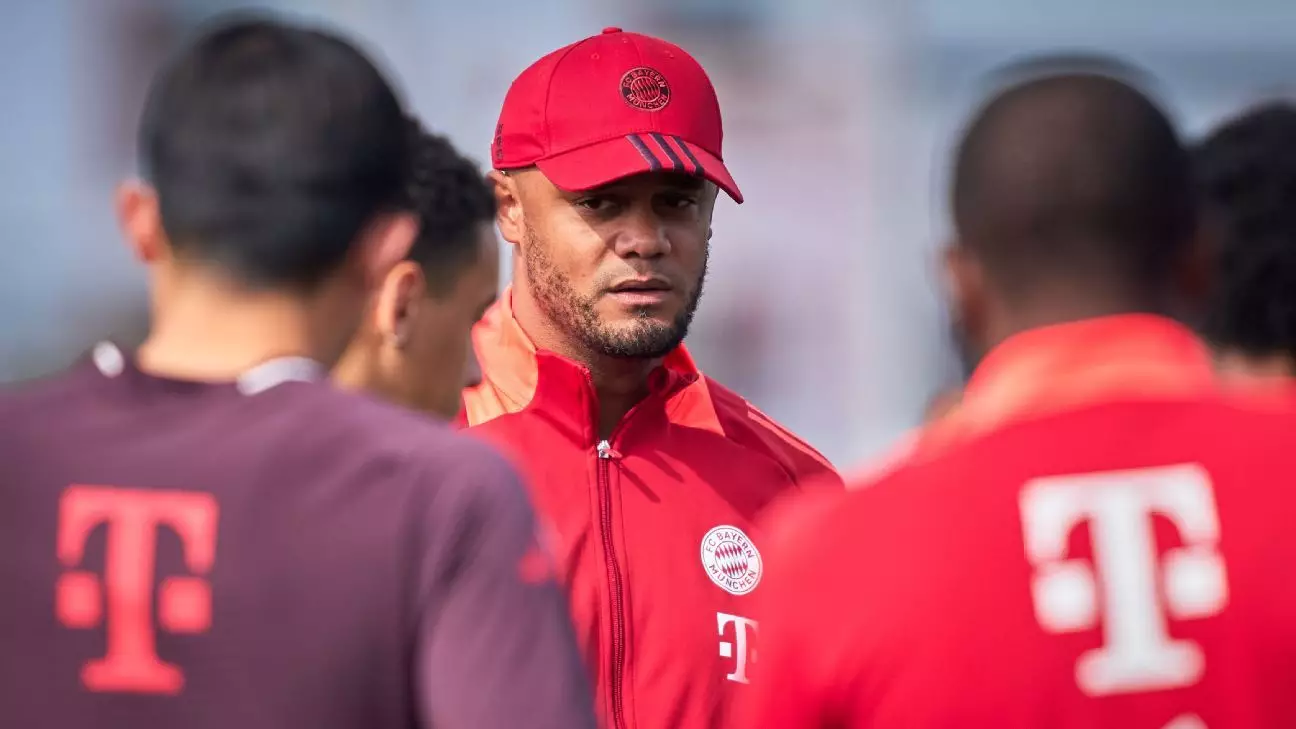Oktoberfest, an iconic German festival, represents much more than just an extensive beer-drinking extravaganza; it signifies a communal spirit, cultural essence, and the joyous lifestyle that Bavaria is famously known for. For Bayern Munich, the world-renowned football club located in this vibrant city, the festival embodies a unique backdrop against which its current footballing journey unfolds. A closer examination of the club’s recent resurgence reveals not only a reawakening in performance but also a striking redefinition of team dynamics shaped largely by the influence of their new manager, Vincent Kompany.
This year’s Oktoberfest coincides with critical developments at Bayern Munich. Traditionally, the onset of the festival would elicit a sense of merriment among fans and players alike, but it’s particularly poignant this time as the club seeks to recover from a disappointing season. Surrounded by the joviality of “O’zapft is” (the tapping of the first beer barrel), Kompany’s side has showcased a formula that emphasizes fun and camaraderie, reminiscent of the festival’s ethos.
Kompany’s emphasis on living the local culture has proven strategic. As he immerses himself in Bavarian life, his players have responded positively, demonstrating a renewed passion for the beautiful game. This cultural integration has set a tone for a more relaxed approach, which, quite paradoxically, has invigorated performance on the pitch.
One of the most compelling aspects of Kompany’s management style is evident in the tactical transformations he has instituted. Rather than adhering strictly to conventional formations, he has encouraged fluidity that allows players to express themselves more freely. A restricted system can often lead to frustration, but the current setup has prompted the squad to embrace a more adventurous style, fostering a sense of joy in teamwork.
For instance, players like Thomas Müller, who once felt pigeonholed, are now rethinking their roles in ways that capitalize on their creativity and experience. Müller’s notion of “spass” resonates throughout the squad as they collectively rediscover the joy that was sorely missing last season.
Bayern Munich’s recruitment strategy has aligned smoothly with Kompany’s vision, with standout purchases highlighting the club’s intent to marry talent with tactical fit. The acquisition of Michael Olise stands out as an astute move; his rapid acclimatization to the squad, scoring five goals in six games, epitomizes the kind of flair that Kompany seeks. Such contributions not only augment Bayern’s attacking arsenal but also inspire confidence throughout the squad.
Equally, Harry Kane’s arrival marks a profound shift in dynamics. With ten goals in his early appearances, Kane has quickly established a rapport with Olise and others, showcasing a blend of skill and finesse that elevates the entire team. This synergy ensures that Bayern is not merely capable but formidable, poised to reclaim its position atop German football.
Bayern Munich’s true test will come against tougher opponents. While they have thrived in recent fixtures, with record-setting offensive performances reminiscent of their dominant past, the next set of challenges will require greater resilience and strategic acumen. The partnership of Dayot Upamecano and Kim Min-Jae suggests that Kompany is building a strong defensive core that can support aggressive attack strategies.
Joshua Kimmich’s shift back to a midfield role exemplifies the creativity in Kompany’s planning, representing a strategic move to solidify ball retention and distribution. This ensemble of players, galvanized by the tactical philosophy sprouting under Kompany’s leadership, reinforces a squad that is prepared to face future challenges head-on.
While the prevailing sentiment around Bayern Munich is one of optimism fueled partly by the Oktoberfest festivities, it is crucial to temper expectations with a sense of realism. The fixtures against Bayer Leverkusen, Aston Villa, Eintracht Frankfurt, and others represent formidable hurdles that will not only test the team’s resilience but also Kompany’s capacity to adapt under pressure.
In the midst of this electrical atmosphere, it is essential that Bayern Munich remains grounded. The cultural significance of Oktoberfest, often epitomized by merrymaking and celebration, mirrors the intense emotional investment surrounding the club—where victories provide joy and losses, heartache. Moving forward, the road may not always be smooth, but the lessons learned in blending football with culture could very well lead to a triumphant season filled with both enjoyment and success.

